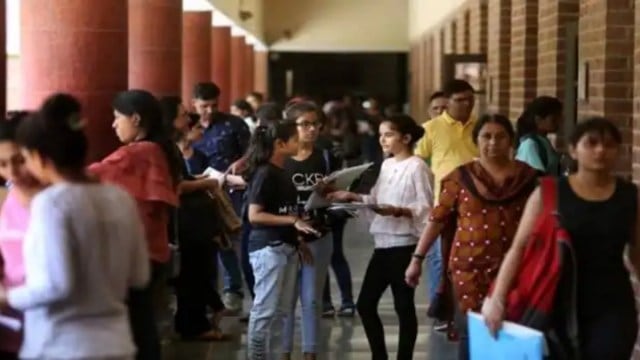
The new National Education Policy (NEP) was implemented in 2020, replacing the outdated NEP of 1986. This long-awaited reform, delayed for 34 years, highlights the indifference of successive governments in updating education policy to cater to the rapidly changing needs of the post-1991 reform period. A major issue with the old system was the low employability of the youth graduating from schools and colleges. The rapidly changing technological environment exacerbated this problem.
The generation that attended college in the 1990s or early 2000s could hardly have anticipated the industries they would work in the coming decades. The advent of the internet, Industry 4.0, and shifting global trade patterns have dramatically altered the industrial landscape and, with it, the employment market. Many of the industries, businesses and job profiles today did not exist 20 years ago.
Today, more than ever, we need an education system that provides not only in-depth knowledge in various disciplines but also the essential skills required to navigate the modern world. These include soft skills, technical skills, research capabilities, analytical and problem-solving abilities, and critical thinking. Additionally, the system should emphasise cultural and value-based education, enabling students to contribute meaningfully to society and the nation.
This comprehensive approach is encapsulated in the NEP through credit-based courses, ensuring that students receive a well-rounded education. However, the implementation of the NEP has sparked considerable debate. Some critics argue that it dilutes the core content of higher education and burdens students and educators with bureaucratic requirements. While these concerns are well taken and the suggestions are valuable, it is important to recognise that adopting a new system and overhauling the vast education sector is a continuous task. Many of these criticisms are premature and, in some cases, over-emphasised.
The NEP shifts all programmes towards outcome-based learning. Under this approach, each course has specified learning outcomes, and assessments are designed to measure these outcomes. It offers students the flexibility to develop their academic path based on their talents, interests, and career goals. However, it does not mean students can pick a random assortment of courses without a core foundation. Institutions like Delhi University have structured their degree programmes to allow students to choose a major and a minor discipline for in-depth study alongside a variety of electives that provide a multidisciplinary perspective.
The NEP’s design includes generic electives, ability and skill enhancement courses that equip students with skills for employability or entrepreneurship. Students are no longer envisioned as mere consumers of knowledge but active partners in learning. The UGC has proposed a model structure, but universities have the autonomy to design the final syllabus. Much of the criticism is centred around the syllabus design and content, but it’s a university-specific issue and not a failure of the NEP.
Some universities — Delhi University for instance — have done excellent work in the adoption of the NEP, with continuous updates according to feedback from stakeholders, as a complex adaptive system should. Delhi University has adopted a higher credit framework than prescribed by the UGC, allowing students to earn additional credits to further their academic knowledge.
The NEP also recognises the varied backgrounds and circumstances of students. Previously, students who left a degree programme to earn a livelihood were seen as dropouts. The NEP now allows these students to exit and re-enter programmes, facilitating lifelong learning. Additionally, students gaining industrial exposure related to their studies can earn credits through Recognition of Prior Learning (RPL), which counts towards their degree after proper assessment.
The curriculum and syllabi of undergraduate programmes have been revamped to emphasise hands-on learning for effective education. Tutorials, an essential part of courses without practical components, are now credited through continuous assessment, ensuring rigorous academic standards. While it is true that more resources are needed to realise the full potential of the NEP, infrastructure development is a long-term process and cannot be expected to be completed within a year or two. The NEP also integrates internships, apprenticeships, projects, and community outreach within degree programmes, providing students with practical experiences crucial for real-world applications.
A lot of opposition seems to come from the old guard, still wedded to a socialist worldview, exhibiting a disdain for markets, industrial experience, and internships. It is important here to consider the views of B R Ambedkar, who advocated for education that focuses on employability for the vast majority of India. Ambedkar believed that industrialisation and economic growth were essential for the country’s progress and the emancipation of the masses. He advocated for an education system built on the synergy between academia, industry and the market to ensure the creation of better human resources and the employability of individuals from disadvantaged sections. The NEP is an opportunity to undo the damage of the previous decades when such advice was ignored and academia was de-linked from the wider society. It is time for academia to be responsive to the requirements of the masses and markets.
The writer is assistant professor at Ramjas College, Delhi University and national vice-president of the BJP’s youth-wing


